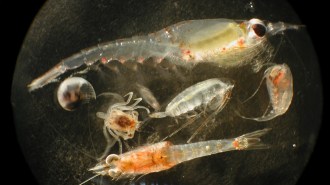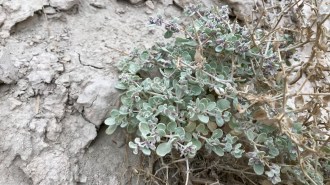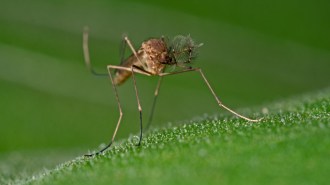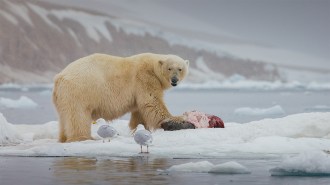Earth
Sign up for our newsletter
We summarize the week's scientific breakthroughs every Thursday.
-
 Earth
EarthA volcanic eruption might have helped bring the Black Plague to Europe
A volcanic eruption may have triggered a deadly chain of events that brought the Black Plague to Europe in the 14th century.
-
 Earth
EarthHuman-caused earthquakes are real. Here’s why even stable regions can snap
Human activity can cause “healed” faults to release their stored strength, triggering unexpected quakes in tectonically stable regions.
-
 Climate
ClimateHere are 3 big ideas to combat climate change, with or without COP
As action from the U.N.’s huge COP30 international meeting falls short, smaller groups are banding together to find ways to fight climate change.
By Meghie Rodrigues and Carolyn Gramling -
 Oceans
OceansCombining western science with Indigenous knowledge could help the Arctic
Polar marine ecologist Marianne Falardeau investigates how Arctic ecosystems are shifting under climate change.
By Nikk Ogasa -
 Climate
ClimateLife-saving research on extreme heat comes under fire
The Trump administration’s cuts to heat research come at a time when climate change is making extreme heat waves more common and intense.
By Nikk Ogasa -
 Oceans
OceansDeep-sea mining might feed plankton a diet of junk food
An analysis of mining plumes in the Pacific Ocean reveals they kick up particles sized similarly to the more nutritious tidbits that plankton eat.
- Animals
This fly’s flesh-eating maggot is making a comeback. Here’s what to know
After a decades-long hiatus, new world screwworm populations have surged in Central America and Mexico — and are inching northward.
By Carly Kay -
 Plants
PlantsA special shape shift helps a shrub thrive in blistering heat
A microscope reveals an algae-like adaptation that might future-proof crop photosynthesis in extreme heat.
-
 Animals
AnimalsMosquitoes infiltrated Iceland. Will they survive the winter?
Mosquitoes have reached Iceland, a place once thought too harsh for them to survive. Climate change may play a role in this shift.
- Animals
Deep Antarctic waters hold geometric communities of fish nests
Scientists found thousands of patterned fish nests in Antarctica’s Weddell Sea, boosting calls for marine protected areas.
By Carly Kay - Climate
Hurricane Melissa spins into a monster storm as it bears down on Jamaica
The story of Atlantic hurricanes is treading a familiar — and frightening — path: Climate change is fueling huge, slow-moving, rain-drenching storms.
-
 Animals
AnimalsPolar bears provide millions of kilograms of food for other Arctic species
A new study shows how much food polar bears leave behind — and how their decline threatens scavengers across the Arctic.